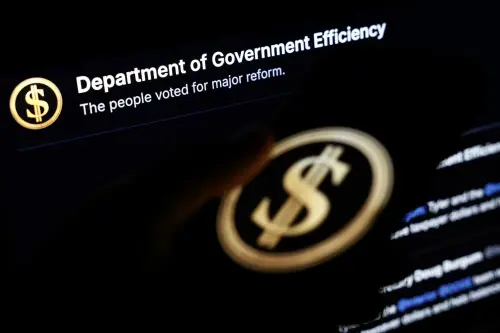It was a major, even “unprecedented” defeat for Turkey’s ruling Justice and Development Party (AKP). Or that’s how it seemed. But, looked at another way, the election results actually underlined just how successful the party had become.
The AKP had seemingly alienated everyone but its own base. There were Erdoğan’s authoritarian ambitions. There was a sputtering economy. On top of all of that, Turkey had grown isolated, suffering one foreign policy failure after another. Yet the AKP won 47 percent of the seats (and 41 percent of the vote), with the Republican People’s Party (CHP) finishing a distant second, with only 24 percent of the seats.
If that’s what counts as an “unprecedented defeat,” then this was one very successful party. To put it in comparative perspective, the AKP, at its worst, still won about 6 percent more seats than Egypt’s Muslim Brotherhood or Tunisia’s Ennahda did at their best.
Party hubris
Of course, Turkey’s President Recep Tayyip Erdoğan had originally hoped for 400 or at least 335 seats in parliament (out of 550), which would have allowed him to push for a presidential system and exert more personal control over the long-term direction of Turkish politics.
The hubris had gotten a bit out of hand. In parliamentary democracies, it’s generally difficult to reach the magic number of 50 percent, yet here the AKP thought it could win 73 percent. (Because of Turkey’s unusually high 10 percent electoral threshold, parties can win seats well beyond their popular vote share, but 73 percent is still exceedingly difficult).
When I met with AKP official and parliamentary candidate Mazhar Bagli in February, he brought out of a piece of paper and drew a picture for me. There was a small circle and a big circle. This represented the past, where the small circle—the 20 percent of secularists—controlled the country at the expense of everyone else. He then drew another pair of circles, one big and one small. In this “new Turkey,” the big circle, inside of which he scribbled “80 percent,” had finally gotten its due, and secularists now had to accept reality. Another AKP figure I spoke to—also in his own right quite colorful—put the number of “secular idiot elites,” as he called them, at 5 percent.
Perilous presidentialism
Turkey (and ultimately the AKP as well) should count itself lucky. It avoided a political system—presidentialism—distinctly unsuited for ideologically polarized societies. Ironically, the very thing Turkish Islamists have repeatedly benefited from—parliamentarism—was the one thing Erdoğan wanted to undo. One reason why Turkey has managed to bounce back from successive coups is that ousted parties can generally reconstitute themselves more quickly in a parliamentary system. On the other hand, where the president dominates and happens to be an Islamist (or a socialist in other contexts), conflicts become even more personalized than they might otherwise be. The stakes are simply too high.
Early elections and no-confidence votes are regular features of parliamentary democracy. Presidents, on the other hand, are generally difficult to impeach or otherwise get rid of, requiring voters to wait four years or longer to express their buyers’ remorse. In Egypt, liberal and other anti-Islamist Egyptians weren’t interested in waiting for the democratic process to play out, opting instead for military intervention. As Juan Linz wrote in his classic essay, The Perils of Presidentialism:
An embattled president can use his powers in such a way that his opponents might not be willing to wait until the end of his term to oust him, but there are no constitutional ways—save impeachment or resignation under pressure—to replace him. There are, moreover, risks attached even to these entirely legal methods; the incumbent’s supporters may feel cheated by them and rally behind him, thus exacerbating the crisis. It is hard to imagine how the issue could be resolved purely by the political leaders, with no recourse or threat of recourse to the people or to nondemocratic institutions like the courts or—in the worst case—the military.
Parliamentary systems, though, can have their drawbacks. So while political scientists might hail the virtues of coalition governments and no-confidence votes, voters might not. To the extent that parliamentary systems produce fragmented coalitions between parties that might not otherwise have much in common, they may be less “effective.”
This was basically Erdoğan’s argument—that there were too many obstacles to getting things done and that he’d like to remove them, by concentrating power in a powerful presidency with minimal check and balances. As Erdoğan put it: “I should be the one determining who I work with, but can’t do this under the present system because there are those, the judiciary for example, who prevent it. You can’t run a country, or a city in this way.”
In a parliamentary system, the pro-Erdoğan columnist Resul Tosin wrote, there were irritating impediments like “votes of confidence” and “interference by opposition parties.” Tosun also hypothesized that, with as much as the AKP had accomplished during 12 years of power, the achievements would have been “threefold” under a presidential system.
Demonstrating that coalition governments are less stable and effective is what Erdoğan may now be hoping for. Some Turkish voters may already be feeling buyer’s (or seller’s) remorse. One post-election poll suggested that the AKP would increase its vote share from 41 percent to 45 percent if snap elections were held. As Mustafa Akyol writes, “some voters, apparently, decided to ‘punish’ the AKP during the elections but are now worried about the instability they may have caused.” Ironically, again, the AKP is banking on the inherent flexibility of Turkey’s parliamentary system—something that they were, just a month earlier, hoping to undo.
The Brookings Institution is committed to quality, independence, and impact.
We are supported by a diverse array of funders. In line with our values and policies, each Brookings publication represents the sole views of its author(s).




Commentary
Down, but not out: The essential resilience of Erdoğan and the AKP
June 24, 2015